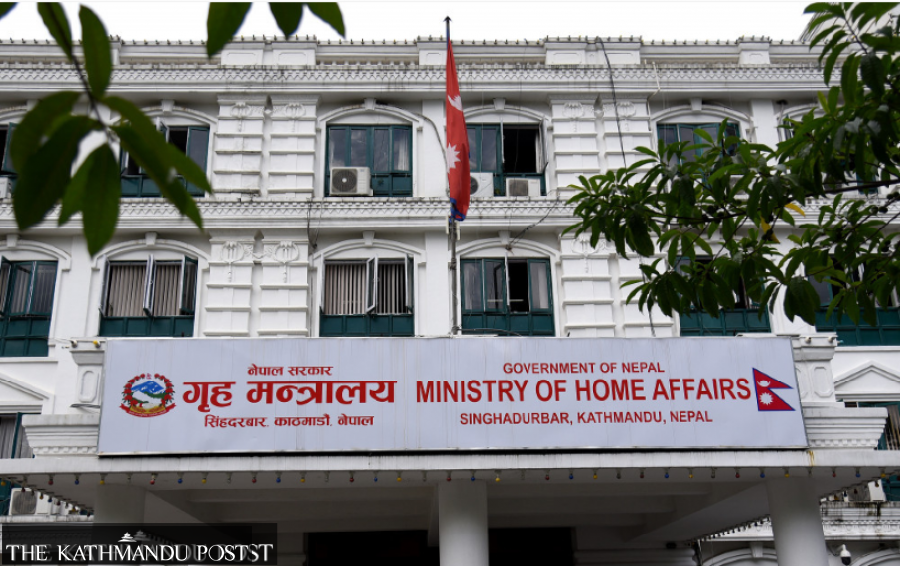Politics
Personal feuds, fake social media posts new security risks for the elections
Unlike in the past, the primary threats are not the parties that have boycotted the November 20 elections.
Anil Giri
With the elections around the corner, poll security has been a paramount concern.
In view of the federal and provincial elections, the Ministry of Home Affairs is speeding up its preparations to ensure safe and fair November 20 polls.
Officials preparing an integrated security plan said armed groups pose no big security threat for the elections this time and outfits that have announced to boycott the polls might also not engage in violent disruptions. They said intra-party and inter-party rifts were bigger challenges.
Conflict between the parties could be the biggest threat to the safety of elections, said Fanindra Mani Pokharel, spokesperson for the home ministry.
A breakaway faction of the Communist Party of Nepal (CPN) led by Dharmendra Bastola is likely to pose a threat even though the outfit is not expected to cause a big trouble, home ministry officials said. In April, the CPN expelled its secretariat members Hemanta Prakash Oli alias Sudarshan and Dharmendra Banstola alias Kanchan for acting against the party organisation and leadership.
According to Pokharel, those deprived of tickets could try to create disruptions as well. “This time, we foresee a different kind of security challenge to the conventional ones like bombing and arson,” said Pokharel.
An alliance of some fringe communist parties led by CP Gajurel also announced to boycott the elections but their impact will be minimal, said a senior security official. “We are monitoring the activities of political parties that are boycotting the elections,” the official added.
Aspirants who are deprived of tickets may create trouble, leading to clashes between fellow party leaders and cadres during campaigns and on the election day. If political parties manage the dissatisfaction within their respective parties including in ticket distribution, said Pokharel, there will be fewer security challenges.
The Election Commission held a meeting earlier this week with security officials to learn about the government’s arrangements.
“We do not sense any big security threats this time but new challenges could emerge,” said Chief Election Commissioner Dinesh Thapaliya. The kinds of risk differ before the nomination of candidates, after the nomination and around the polling day, he added.
“There are usual security challenges in some Tarai districts and for that security agencies will have a specific plan,” said Thapaliya.
He pointed out two kinds of challenges. One concerns disputes among party cadres over the selection of candidates, and the other is related to the problems caused by misinformation and disinformation circulated on social media.
Amid criticism from various quarters, the Election Commission has set up a “press office” in order to look into the contents of social and mainstream media. The Federation of Nepali Journalists and other media organisations have condemned the move, saying that freedom of expression could be at stake due to the mechanism. Members of the “press office” mandated to monitor news items and social media posts include those from Nepal Army and Nepal Police.
Thapaliya clarified that it is not the job of the Election Commission to look after cyber crimes. However, misinformation and disinformation disseminated by the media can create trouble during the elections.
“Misinformation and disinformation about the elections and candidates spread through social media can create unnecessary conflict. We need to closely monitor iffy posts made via fake accounts,” said Thapaliya.
The Ministry of Home Affairs has already instructed the security agencies to come up with an integrated security plan for the elections. The ministry has also asked all 77 district administration offices to prepare district-specific security plans.
“As security challenges can differ from district to district, one strategy may not be applicable everywhere,” said Pokharel.
President Bidya Devi Bhandari has sanctioned the mobilisation of Nepal Army for the elections. The national army has got 10 different mandates while mobilising across the country as per the recommendation of the National Security Council, said another security official.
The Home Minister-led Central Security Committee has already approved the integrated security work plan. Under this, the army will take stock of the situation outside the election booths, conduct aerial patrols, and provide security during the printing and transport of ballot papers. Besides helping with the supply of other logistics for the elections, the army will secure vital installations like prisons, airports, hydropower plants and other critical infrastructure.
According to officials, more than 300,000 security personnel will be deployed during the elections. Among the personnel mobilised, 75,000 will be from Nepal Army, 71,593 from Nepal Police, 32,000 from Armed Police Force and 1,500 from the National Investigation Department. As many as 115,000 temporary police, who are being trained in all 77 districts, will also be on the ground during the election period.
As per the plan, Nepal Police and temporary personnel will be deployed inside polling booths. More personnel will be deployed at sensitive polling stations, districts adjoining the international border, constituencies categorised as “sensitive” and the districts and areas that faced considerable security challenges in the past.
Ganesh Adhikari, former chief of the Investigation Department, said party workers are being threatened by their own rivals rather than by other political outfits.
The Netra Bikram Chand-led Maoists have split into many groups, leaving the party weaker, said Adhikari.
As the elections are taking place in a single phase, it might add to the security challenge as personnel will be spread out thinly.
Adhikari also hinted at the likely problems that could be created by candidates who try to buy votes during the election silence period.
If the parties manage their differences and minimise conflicts within and between parties, home ministry officials say, security challenges will remain mainly for a few days until the polling day.




 18.12°C Kathmandu
18.12°C Kathmandu















